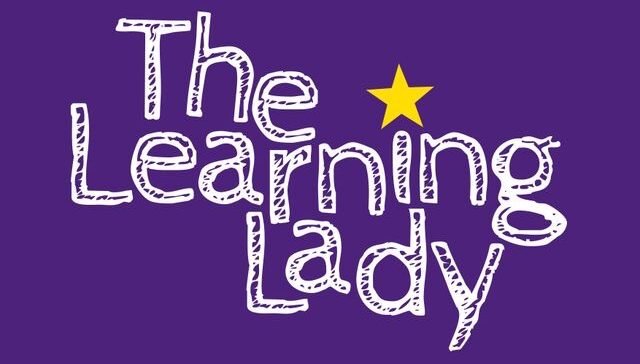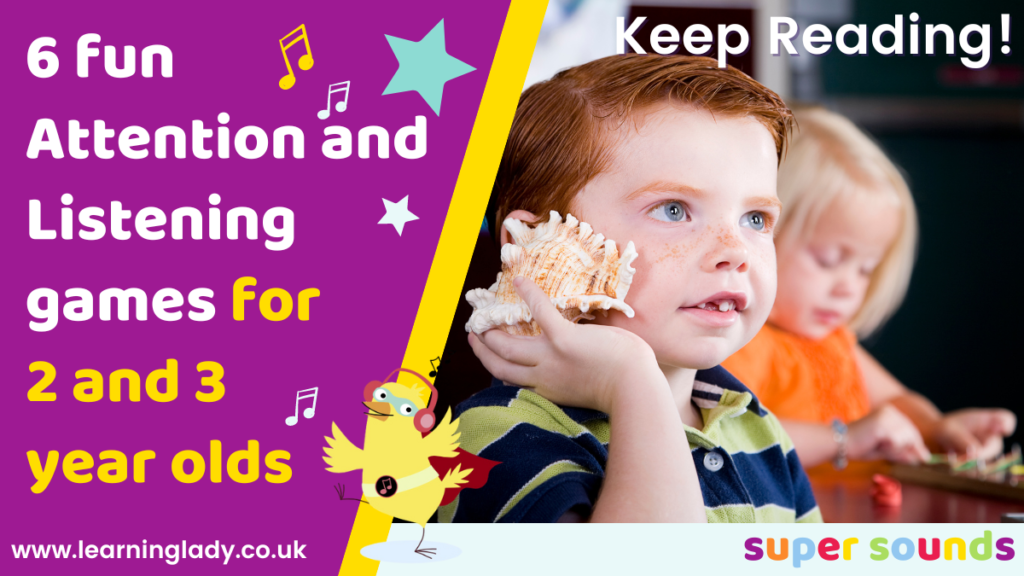Super simple and fun attention and listening games have never been more important because when children begin school, many children struggle to pay attention and listen.
It’s easy to take the ability to listen and pay attention for granted.
But in today’s world, where visual and sound distractions are everywhere, this is easier said than done.
Why listening games for preschoolers matter
Attention and listening skills are crucial for focus, understanding, and engaging with others. If these fundamentals are not successfully in place, learning anything can be a struggle.
The importance of attention
Paying attention allows children to tune into information and instructions. This keeps children safe as they follow directions and participate in activities.

Listen up!
Listening skills help preschoolers to understand verbal communication, respond appropriately, and engage in meaningful conversations.
This is essential for building strong relationships, expressing needs, and navigating social situations.
Attention and listening skills are also linked to memory and critical thinking.
When children can focus and listen attentively, they are better equipped to process information, make connections, and develop a deeper understanding of the world around them.
Listening games for preschoolers can therefore have a lasting impact on a child’s overall learning and development.
Benefits of using listening games in early years
Interactive listening games early years are powerful. They captivate interest and encourage plenty of active participation.
This makes learning a fun and enjoyable process, with 2,3 and 4 year olds who are more likely to stay focused and engaged.
Interactive listening and attention games provide a safe environment for early years children to practise and repeat these critical skills.
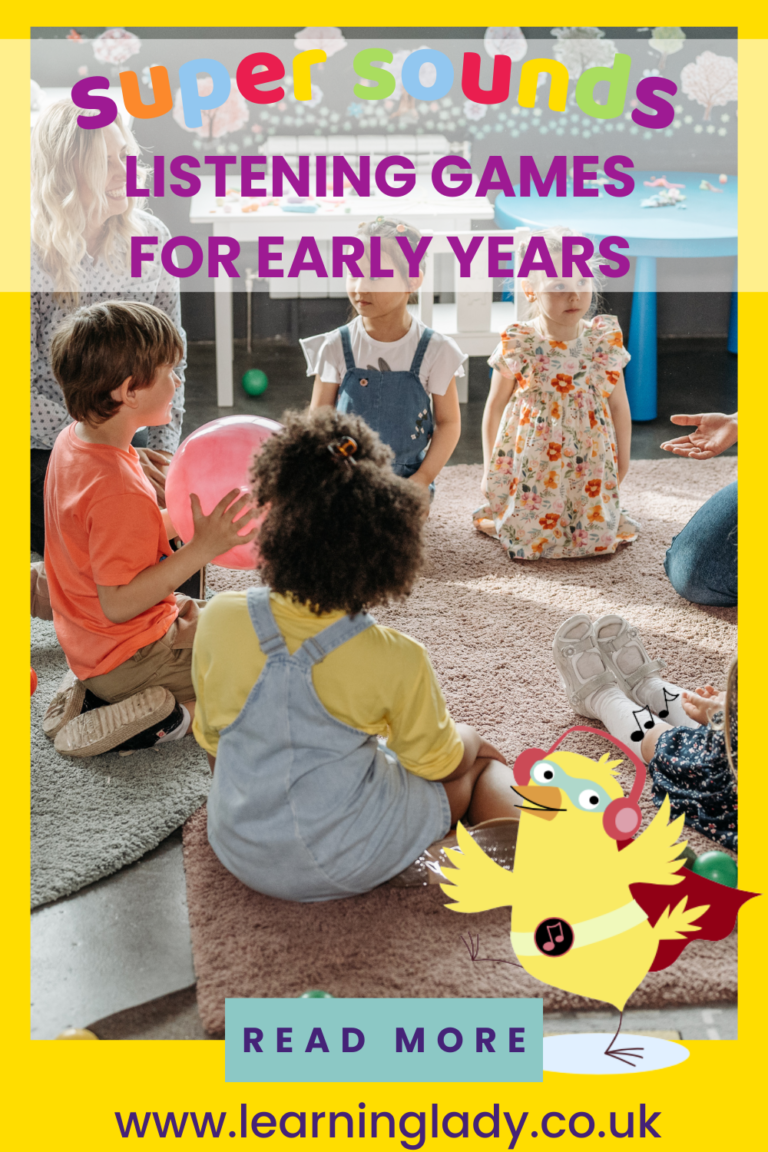
Through repeated exposure and guided practise, children can gradually build their concentration, improve their ability to follow directions, and enhance their overall communication.
How phase 1 phonics listening games help
Attention and listening skills are also a critical element of preparing children for reading.
Most children learn to read using Phonics. This is a system based on matching spoken sounds to letters which crucially involves tuning into the similarities and differences in sounds..
Phase 1 phonics listening games begin simply by raising awareness of the everyday sounds that they know.
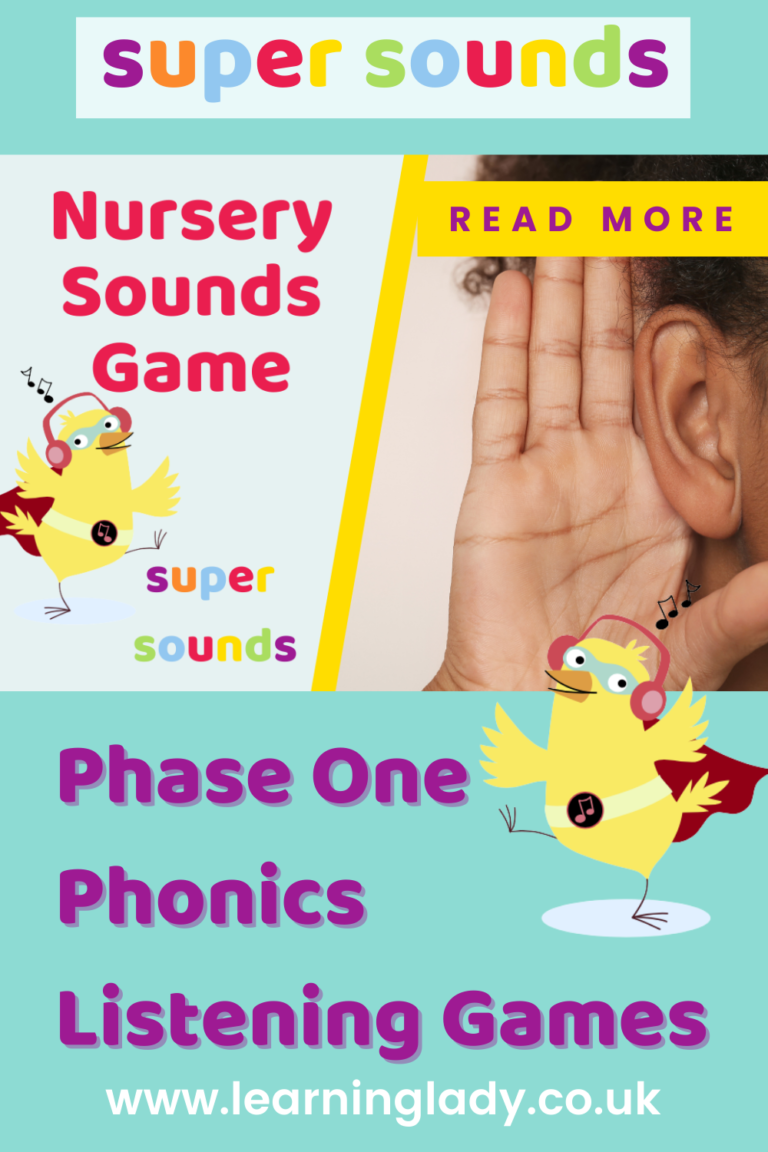
Through plenty of practise, children learn to tune into the differences between loud sounds and quiet sounds, fast and slow sounds.
This is the perfect preparation for phonics and will mean that they are ready for reading.
Using phase 1 listening games to develop listening and attention
The best books to inspire active listening games
Books are the perfect starting point for all listening games because engaging with a story is fundamentally a listening activity.
Stories that involve lots of participation are perfect for 2,3 and 4 year olds to get involved.
Whether you’re developing listening and attention at home or nursery, there are so many different books to choose from. Consider:
- Noisy books
- Nursery Rhyme Books
- Song Books
- Lift the flap books
- Books with opportunities to join in with animal sounds or noises
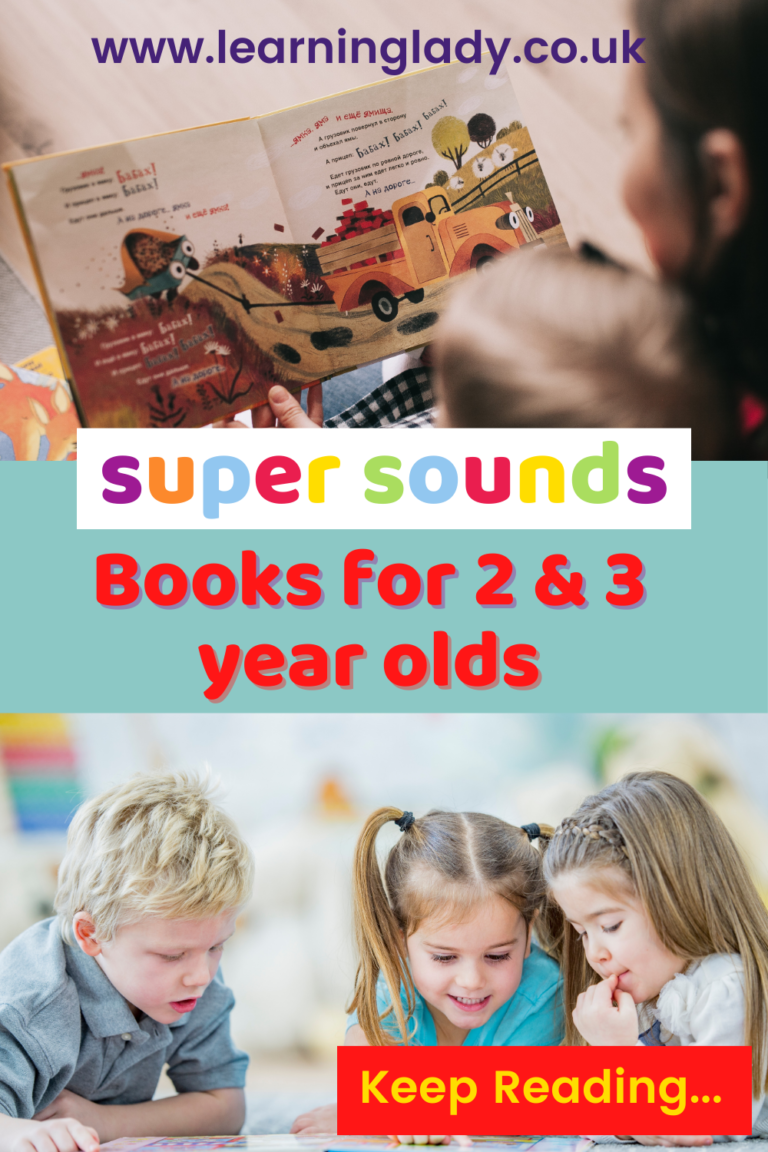
Here are some great books to try
If you’re always on the lookout for fun and engaging books to use with your preschoolers, or recommend to families, then this FREE Super Sounds pre-phonics booklist is just what you need.
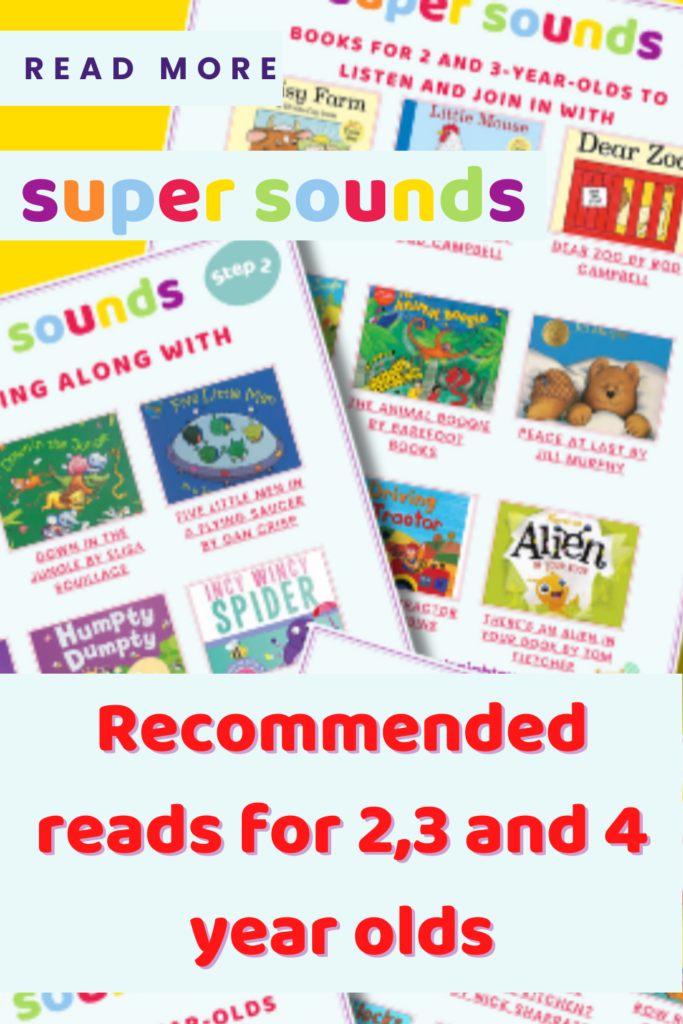
It’s crammed with over 100 super useful books to share with your 2,3- and 4-year-olds, including everything you need for perfectly prepared preschoolers.
Full of instantly clickable links, it’s the ultimate digital timesaver you’ve been looking for, and it’s FREE!
Top tips for successful preschool listening games
Ensuring that preschool listening games are effective and run smoothly requires a bit of ground work. Here are some key tips to consider:
Limit visual distractions
A huge barrier to successful listening and attention can be the environment. Visual distractions like clutter or an abundance of colours or visual aids can be over whelming. This draw brain activity to the visual stimuli, rather than exercising the part of the brain linked with listening and sound.
Reduce sound distractions
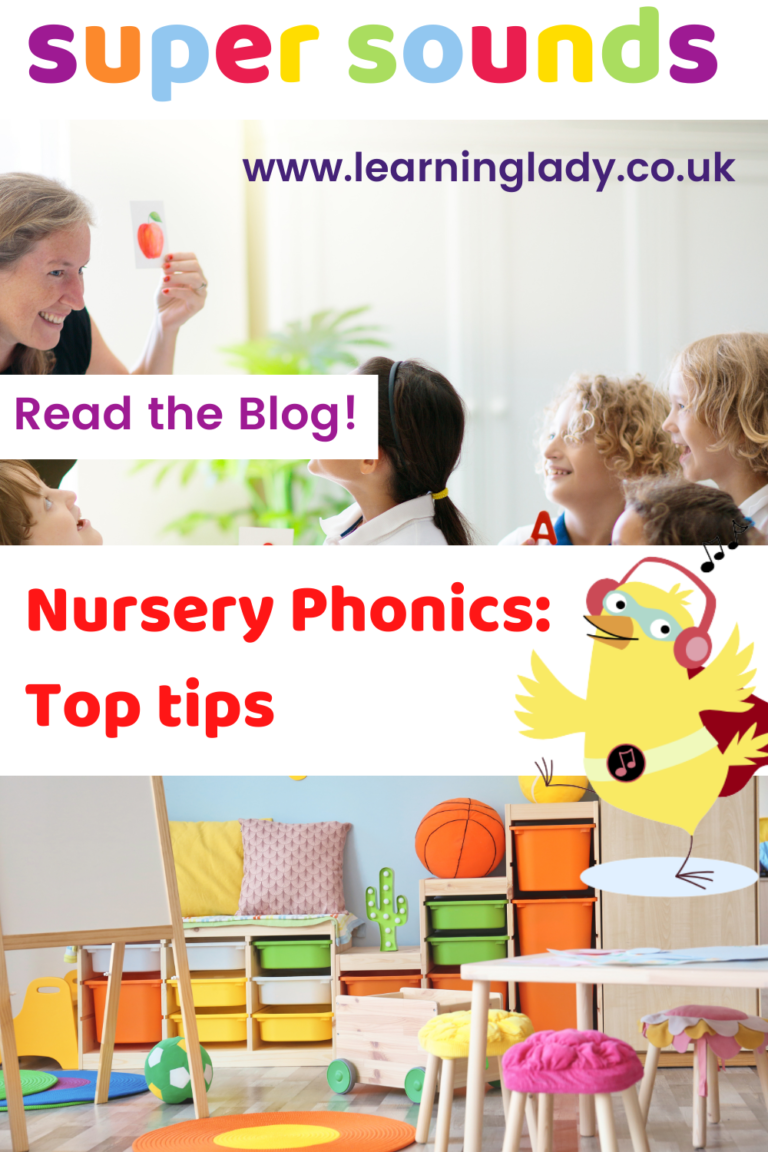
Sound distractions can also prove to be challenging. In the early stages of listening, preschoolers find it very hard to focus attention on one sound in an environment of many.
Children playing, music, snack preparation, or vehicles outside can all play their part in drawing the brain’s attention from the intended listening activity.
Establish clear expectations and instructions
Explain the expectations to the children, as simply as possible. The fewer words we use, the less the children will need to process. Support with positive body language and consistent gestures as much as possible.
Model listening behaviours
Showing children what ‘good listening’ looks like is critical. Demonstrate how to actively look, be still, and take turns. You’ll need to be patient! It’s more effective that they observe and copy an adult first, before using picture symbols and prompts as reminders later.
Have a ‘hook’
Include physical movement, music or interactive storytelling to capture attention from the start. When children are hooked in from the start they are more likely to remain focused.
Praise progress
Recognize and praise children’s efforts, even if attention and listening are only fleeting at first. Building up just a few seconds everyday can lead to phenomenal success over time.
“I love the way you’re listening”, “Great concentrating.” or “you joined in really well today.” all help the children know what they are aiming for.
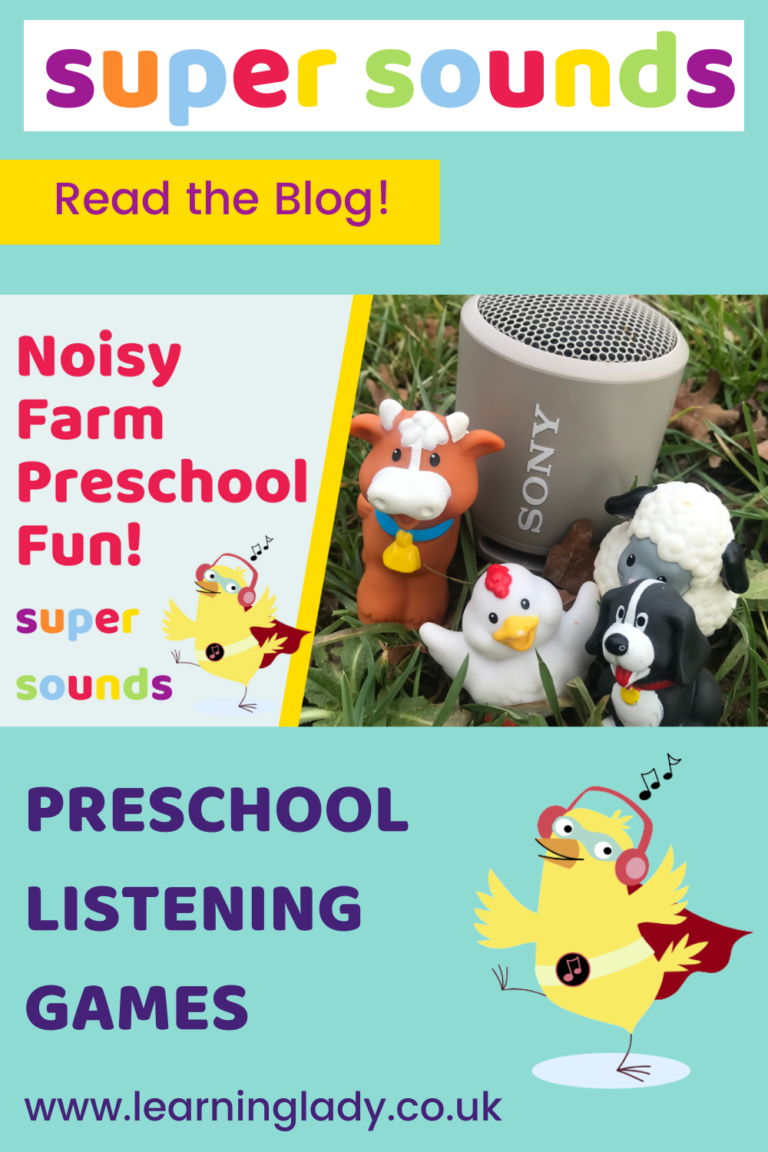
Mix things up!
Don’t be afraid to adapt your listening games based on children’s reactions and engagement levels. Flexibility and responsiveness are key to maintaining their focus and interest.
Adaptations could include:
- Slowing things down or speeding them up.
- Reducing or increasing the amount of sounds.
- Introducing familiar or new sounds.
- Talking about listening as well as simply hearing..
Using technology for preschool listening activities
Incorporating technology into your preschool listening activities is a super simple way to engage young children.
When used in the mix with other play based activities, using multimedia resources can captivate our digital-savvy generation of early learners.
However, maintaining a balanced approach to listening opportunities is essential. Technology-based activities must complement and enhance, rather than replace human interactions, group games or playful learning.
There’s a danger that too much screen based learning can create passive learners who give the appearance of listening who are totally tuned out due to over exposure.
3 FUN attention and listening games to play today
The Super Sounds book is a prephonics programme for 2,3 and 4 year olds that includes plenty of fresh and fun attention and listening games for early years children.
Here are some of the easy peasy games featured in the book. They’re low prep, easily adaptable and are games that your children will love to play over and over again.
Attention and Listening Games: Noisy Eggs
Attention and Listening Games: Pass The Box
Attention and Listening Games: Noisy Shopping
Nursery Phonics Planning
If your preschooler enjoyed playing these preschool listening games and you want to continue the prephonics fun, then Super Sounds is just what you need
It’s an evidence-based, tried and tested prephonics programme that is designed specifically for 2,3 and 4 year olds.
Perfect for using before any phonics programme, Super Sounds is uniquely written for a fun and engaging approach to teaching a progression of prephonic skills step by step.
Whether you want fresh ideas as an alternative to Phase 1 Phonics, or you’re new to phonics in nursery and don’t know where to start, Super Sounds is waiting for you!
More ideas for Listening and Attention Games in Nursery
Super Sounds by The Learning Lady
Ready for Reading – Preschool Online Training Course
SIMPLE Listening game for nursery phonics|Guess the sound
Phase 1 phonics listening and attention skills
Looking for new preschool listening games?
Phonics for 2 and 3 year olds | Phase 1 Phonics
Listening game | phase 1 phonics | Christmas
Phonics for nursery | Christmas listening fun
How to teach phonics to preschoolers and toddlers
Fun preschool phonics game for 3 year olds
5 super simple preschool listening games your children will love!
5 fun and fast phase 1 phonics listening games using musical instruments
5 fun and engaging listening activities for preschool to try today
What comes before Phonics by Sally Neaum
